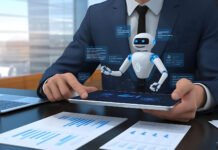Table of Contents
1. The Role of Self-Learning in Personal and Professional Growth
1.1 Personal Growth
1.2 Professional Growth
2. Building a Culture of Self-Learning
2.1 Strategies for HR Enthusiasts
2.2 Tips for Implementation: Turning Vision into Reality
Conclusion: Embark on the Journey of Growth
The environment of this century calls for self-learning as a strategic need for individuals and organizations. Current statistics show an increasing gap between the abilities required in the workplace and those held by workers. For instance, a study conducted by the World Economic Forum underlines that in 2025, more than half of all employees will need major reskilling to meet the evolving needs of their positions.
This expanding skills’ gap requires a more active approach to learning that goes beyond the traditional paradigms of formal education. Examples may include how the demand for digital skills has increased across various industries in real time. With technology redefining the workplace profile, self-learners always find an advantage year by year. Companies that support this tendency amongst their employees are likely to reap the many benefits of enhanced innovation and improved efficiency.
This article will explore the practical benefits of self-learning and its application to personal as well as professional development. In addition, it also discusses constructive approaches for organizations, HRs, and C-Suites to develop a climate that promotes and supports self-learning, which leads to innovative thinking.
1. The Role of Self-Learning in Personal and Professional Growth
A self-learning endeavor is like opening the gates of personal and professional development while standing armed with three keys: knowledge, adaptability, and resilience. In the realms of individual and occupational development, self-learning takes on a powerful role that shapes individuals into effective problem solvers while also transforming them into mobile contributors in an increasingly dynamic world.
Let’s explore how self-learning transforms individuals into confident problem-solvers, paving the way for both personal and professional success.
1.1 Personal Growth
Within the realm of professional life, self-learning is a driving force towards transformation and growth that particularly resonates with HR professionals, business leaders, and decision-makers. Corporate individuals who show the characteristic of continuous learning beyond traditional boundaries are highly effective in problem solving, critical thinking skills, and adaptive behavior.
In HR practice, the promotion of aspects like self-learning goes in accordance with developing a workforce that is able to take up challenges and adapt themselves as per changing needs set forth by business. Business leaders recognize the value of employees actively pursuing knowledge and contributing significantly to innovation and strategic thinking. On the other hand, decision-makers profit because employees equipped with self-study activities such as online classes or workshops not only become more confident but also hone their problem-solving and adaptability skills.
This synergy between corporate and personal development is visible in the fact that professionals focusing on self-learning experiences mirror individual progress. Not only does this improve the overall skills of personnel, but it also portrays companies as entities ready to adapt and survive in a changing world. Thus, supporting and embracing self-learning initiatives becomes a must for HR business leaders as well as decision-makers.
1.2 Professional Growth
In the business world, it is undeniable that there is a need for continuous skill development. Industries are changing very quickly because of advancements in technology and changes in the market. The ability to adopt a self-learning approach in the midst of these dynamic changes places professionals on an advantageous path, turning them into very vital assets for their organizations.
There are numerous examples that can be attributed to them, especially in the fields of information technology and health care. In these lines of work, which change at a very fast pace, professionals who are active learners not only keep up to date but also contribute substantially towards organizational development. For example, according to a study, IT professionals who get certification and keep themselves updated with trends are better at problem solving and increase their performance in an organizational environment that is both agile and competitive.
On a final note, self-learning is thus highlighted by its many palpable benefits in terms of problem-solving skills, critical thinking, and adaptability. In the light of modern-day industries, professionals who possess a learning mentality remain very essential; innovation and successful organizations are virtually unattainable without them.
2. Building a Culture of Self-Learning
In developing a culture of self-learning in organizations, it is certainly necessary to resort to conscious attempts that encourage and foster employees as learning creatures. This is especially important in an age where skill supply is constantly changing and continuing to evolve.
2.1 Strategies for HR Enthusiasts
Create Learning Opportunities
HRs have an important role to play in creating a culture of self-learning by instituting systems that provide various kinds of learning products. With online classes and workshops, giving employees access to these tools enables them to discover many ways of learning new skills. The real-time data also shows a positive relationship between organizations that value comprehensive learning systems, which leads to enhanced employee engagement. For instance, a recent survey shows that companies providing diverse learning resources enjoy about a 20% increase in employee satisfaction and a 15% rise in productivity levels.
Encourage Peer Learning
The culture of self-learning is greatly developed by creating a collaborative atmosphere that facilitates peer learning. Going beyond community-building, peer learning promotes organizational intelligence.
Research evidence strongly supports this approach, as companies promoting peer learning show increased knowledge sharing and the problem-solving capability of employees. For instance, organizations with supported peer learning practices had 25% better knowledge exchange and team problem-solving results.
2.2 Tips for Implementation: Turning Vision into Reality
Promote Learning Goals: Aligning with Aspirations
Motivating employees to set learning goals that correlate with their career ambitions is a core principle in the development of a self-learning culture. Purpose and motivation follow when employees have a close connection between their learning interests and professional ambitions.
According to a recent study, employees who set learning objectives aligned with their career goals indicated an increase in job satisfaction of 25%. Such alignment not only increases the effectiveness of learning for individuals but also guarantees a direct application to their roles, consequently helping them develop both personally and professionally.
Recognize and Reward Learning Achievements: Celebrate Milestones
Recognizing and celebrating milestones achieved through self-learning initiatives is therefore an essential factor in entrenching a culture of continuous improvement. This acknowledgement may come in different forms, including awards, other public affirmations, or even job promotions.
According to a study by SHRM, companies that actively celebrate milestones see their employees’ morale increase by 20%. Apart from encouraging job satisfaction, this boost in morale emphasizes the inherent value of continuous learning and ensures that employees feel satisfied with their performance.
Feedback and Reflection: Nurturing Growth
Setting up a feedback mechanism that encourages reflection on learning is crucial for fostering continuous development. Feedback is a critical factor in improving the approach to learning and building a growth mindset.
A recent study conducted by Annual Reviews showed that employees who consistently practice reflective exercises guided by correct feedback have an adaptive increase of 15% in problem-solving. This continuous process of learning and reflection not only enriches personal abilities, but it also creates a culture that sees education as an ever-advancing adaptive route.
Conclusion: Embark on the Journey of Growth
In a changing world, accepting self-learning dynamics is now not only one of the options but also an obligation. People and organizations both gain from the ongoing acquisition of knowledge and skills. By creating a culture of self-learning, we will cultivate an innovative mindset that propels us into the limitless world of endless possibilities. Now is the time to take this journey of development, where every step taken brings closer personal as well as professional perfection.
Explore HRtech News for the latest Tech Trends in Human Resources Technology.












